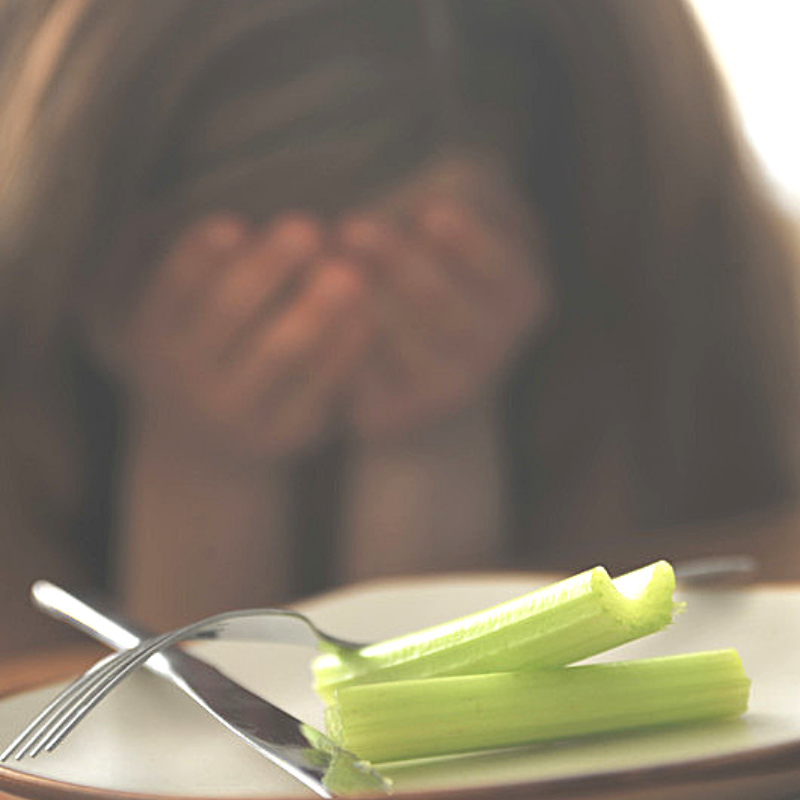(And why that’s a problem.)

Conventional beauty is a status symbol for women in our culture.
Like it or not, thinness and other markers of conventional beauty and femininity are used to determine who goes where in the social hierarchy. Beauty and thinness are used to signal “superiority” over other women in our culture, and as proof that she is better, or more worthy of love, attention, acceptance, and happiness.
It’s not true of course, and deeeeeeep down I like to think we all know that.
Being conventionally attractive doesn’t make a person any more worthy of love or attention than being rich, or white, or tall. But the cultural perception is there.
Social status feels like proof of worthiness, and conventional beauty (including thinness) is the dominant social status symbol for women.
Talking about it this way makes people very uncomfortable. Nobody wants to admit that they’ve spent their life chasing social status, and they certainly don’t want to admit that they think they feel (or want to feel) superior to other people.
But status and superiority are inextricably linked to the conversation about body image.
So what does it mean, that beauty is a status symbol for women?
It means that wanting to become more “attractive” by conforming to various beauty/body ideals is actually often about wanting to achieve a higher social status, or feeling/wanting to feel “better than” other women.
Kinda grim, huh? (Note: It’s totally normal and ok if this topic brings up defensiveness or anger. I simply ask that you stay open and curious about what’s coming up for you.)
Did you know that a very common experience among women with disordered eating is feeling that they’re involved in an invisible competition, and need to prove that they have more willpower, more self-control, more “purity,” or more discipline than everyone else?

Despite the extreme emotional and mental pain these women may be in, there is often a sense of accomplishment, success, and superiority when they succeed at restricting food or purging calories. If they happen to lose an unhealthy amount of weight as a result, that just proves that they’re winning this competition— they may be sick, suffering, and sometimes even dying, but they are also successful. Different. Better. (More worthy.)
Years ago, a friend told me that she didn’t fear anything on earth so much as she feared being “normal.” Her eating disorder made her miserable, but it also made her special, different, better. Only half kidding, she said “I think I’d rather die than look normal and healthy.”
And that’s the point. We’ve been taught that being normal means we’re worthless. That our value and worth can only come from being different, special, better, superior.
It makes sense if you think about it. We live in a culture that teaches people our value comes from being socially dominant, and that only the people at the top have worth. We’re taught that black and brown, poor, disabled, transgender, fat, and “unattractive” people are at the bottom, worthless. We’re taught that white, rich, able-bodied, cis-gender, thin, and conventionally attractive beautiful people are at the top, worth more.
Not to mention how women are taught to be in constant competition with each other; to be on the lookout for other women trying to usurp our social status, steal our partners, and take our place.
It’s as if our entire culture is afraid that there is a finite amount of love, attention, respect, safety, kindness, beauty, and happiness to go around. So we strive for social dominance, in an effort to secure our place in society; to earn our piece of the pie.
And for women, social dominance is achieved through conforming to specific beauty and body ideals.
This can be true even if there are other competing and conflicting desires… like a desire to not be (or seem) selfish, or a desire to raise other women up, or a desire to not make anyone feel bad.
We are large, we contain multitudes, we can feel both. And since this is all typically happening in the subconscious, you might not even be aware it’s happening.

Not with me about how beauty is a status symbol? Just think for a moment about the term “revenge body.”
This concept basically means that you took an ego hit when someone dumped you, and in order to right the situation, you go out and improve your social status by conforming more closely to beauty/body ideals.
The unstated goal of getting a “revenge body” is either for your ex to see you and feel stupid for ever letting you go, for their next partner to see you and know they can’t compare, or for you to snag a higher status partner who makes your ex feel diminished.
The pursuit of beauty/body goals is often the pursuit of social status and superiority in disguise. And this gets in the way when we start trying to pursue body neutrality, self-acceptance, and an authentic sense of self-worth.
We’ve been conditioned to believe the key to feeling happy and confident is by being special, different, and better than everyone else. We’ve been promised that with status and superiority comes the life we want.
But actually, the exact opposite is true.
What if the key to feeling how you want to feel (confident, happy, loved, whole, free, respected, accepted, secure) requires giving up the pursuit of social status symbols?
What if, in fact, it requires dismantling the entire system of hierarchies that lead to us putting stock in status, social dominance, and imagined “superiority” in the first place?
Would you do it?
<3 Jessi
Please follow and like us:


Bình luận